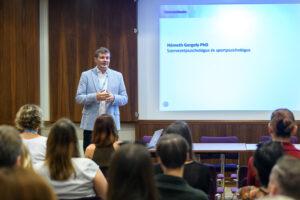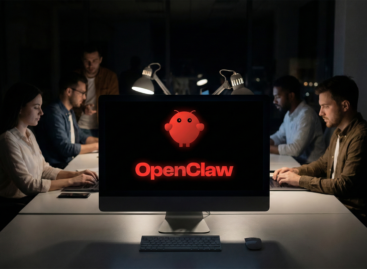Behavioral design is the key to successful change
If we want to put artificial intelligence at our service, we first need to understand human behavior in order to properly train algorithms and make life better overall. This requires not only developers and IT specialists, but also people who understand both the human psyche and the functioning of business.

(Photo: Pixabay)
The media makes a lot of noise about robots taking our jobs. The reality, on the other hand, is that new technologies have already generated more professions than they have replaced so far. Such is the creation of the field of behavior planning. From big tech giants to startups to leading manufacturing companies, behavioral science and behavior design are used to help understand and influence people’s behavior. He is looking for the answer to why we do or don’t do something. The goal of behavior planners is to help people develop positive behaviors and habits and to achieve their goals more effectively. This approach can be applied to all areas of life, such as education, health, finance, business or sustainability.
Not manipulation
Behavioral designers work with a variety of tools and techniques to consciously design and shape people’s behavior. Behavioral engineering seeks to motivate individuals to make better decisions and improve their lives, while manipulation involves deceptive or coercive tactics designed to influence someone’s behavior for gain. Ethical behavior design respects autonomy and individuals, whereas manipulation undermines it. Behavior planning leaves the possibility of free decision to the individual, but at the same time it tries to present, understand, and lead to what the ideal decision and, consequently, behavior would be.
From managerial efficiency to customer satisfaction
Behavioral design is the application of behavioral science principles to the design of products, services, environments, or interventions that influence and shape human behavior. It aims to encourage certain behaviors and choices through deliberate and thoughtful design. The field uses scientific methods to analyze and interpret behavior patterns, motivations, and decision-making processes.
The demand for behavior planning is increasing in Hungary, and companies and organizations are increasingly recognizing its importance
However, the training opportunities were quite limited, and there are only a few similar courses in higher education, which can pose a challenge in the provision of specialists in the field. To fill this gap, a course dealing with behavior planning will be launched at the Budapest Metropolitan University in September. The employment opportunities are diverse and international companies are also looking for qualified professionals who can effectively shape behavior and contribute to shaping the future of companies. “We, those dealing with behavior and change management, learned more and more about people’s decisions, reasoning, thinking and the resulting behavioral responses – and, of course, about their distortions as well. And this knowledge can be used to achieve behavioral changes. This tool of knowledge is a double-edged sword, like so much other knowledge, so it is very important to act ethically and not to end up on the side of manipulation. In all cases, I would like to emphasize the basic principle of the liberal paternalistic approach, i.e. that the right of free decision must be preserved, but attention must be drawn to the consequences of bad decisions. This is very recent knowledge, most of our knowledge was created in the last 40-80 years in the interdisciplinary field of neuropsychology, evolution, decision psychology, etc., which is a body of knowledge that is worth summarizing and handing over to professionals, so they can be more effective. I think this new field of applied science has a serious career ahead of it.” – said Dr. Gergely Németh, university associate professor, associate professor.

Organizational development – behavioral science
Organizational development and behavioral science are closely related. Expertise in behavioral design enables organizational developers to gain a deep understanding of people’s behavior and motivation, on the basis of which they can develop targeted and effective interventions. The behavioral design approach relies on reliable and scientifically based data during organizational development, thereby ensuring effective planning and decision-making. Behavioral design helps organizational developers create a positive organizational culture that supports employee engagement and more effective work. Through this, behavior planning contributes to the more efficient and competitive operation of organizations. The knowledge material of the further training for organizational development consultants, which has been running at METU since 2008, is also related to behavioral science. “With the new training, the university teaches something that has been needed for decades both at the individual and corporate level: the training shows the essence of human relations, it does not focus on what, but on how to do what you do.” – said Péter Tóth-Nagy, founder of Follow The Yellow, employer branding expert.
Related news
Expert: EU AI regulation is here, but Hungarian businesses will have time to prepare for the changes
🎧 Hallgasd a cikket: Lejátszás Szünet Folytatás Leállítás Nyelv: Auto…
Read more >Related news
Expert: EU AI regulation is here, but Hungarian businesses will have time to prepare for the changes
🎧 Hallgasd a cikket: Lejátszás Szünet Folytatás Leállítás Nyelv: Auto…
Read more >HELL CITY has arrived, led by Michele Morrone
🎧 Hallgasd a cikket: Lejátszás Szünet Folytatás Leállítás Nyelv: Auto…
Read more >Two million people have already voted, so 57 million forints will be given to locals in 125 settlements, courtesy of Tesco
🎧 Hallgasd a cikket: Lejátszás Szünet Folytatás Leállítás Nyelv: Auto…
Read more >






